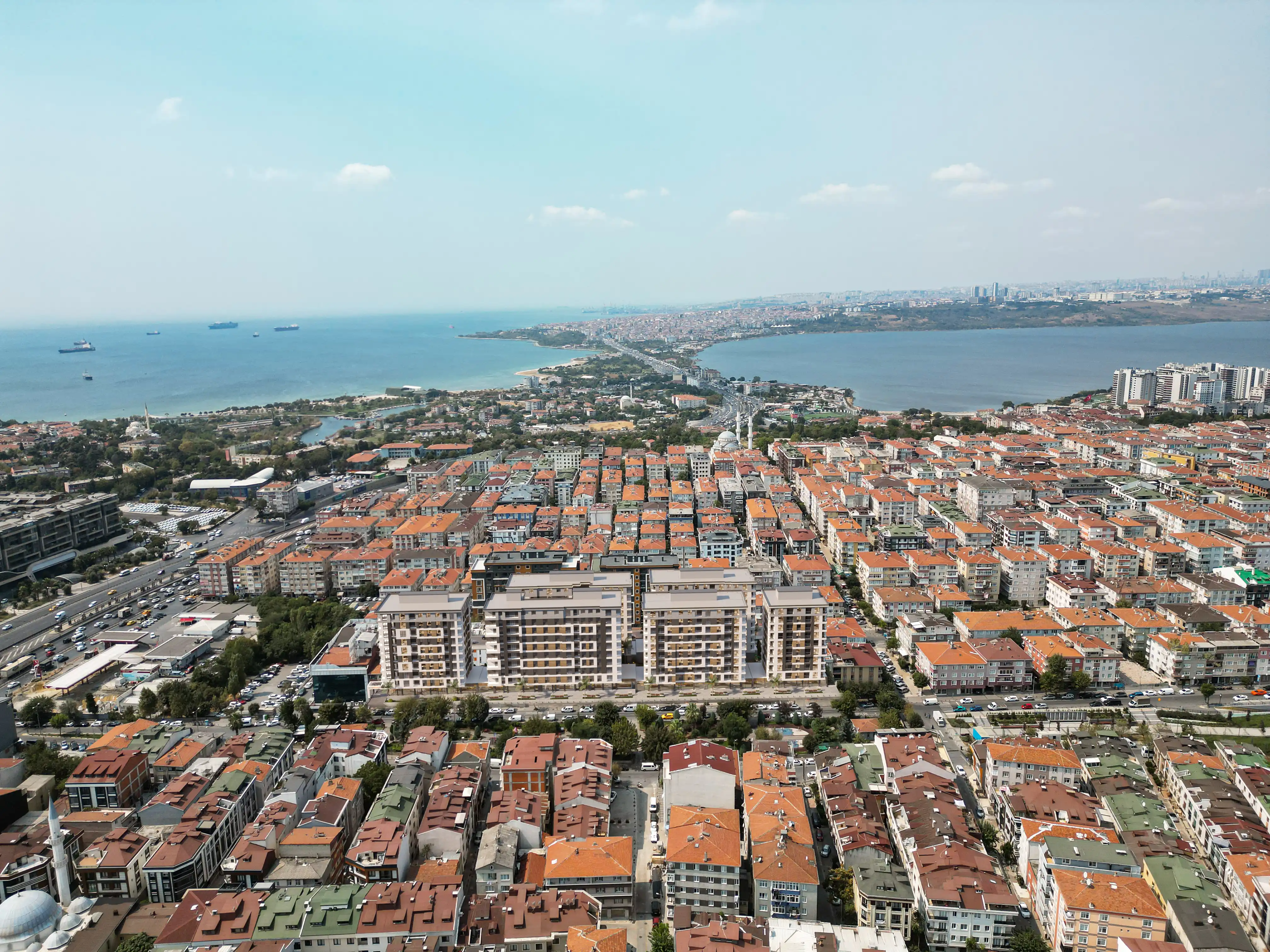Property for Sale in Turkey by Owner – The Ultimate Guide
Looking to buy property in Turkey directly from the owner? This 2025 guide covers top locations, legal steps, benefits, and how to avoid scams—no agent needed.

Introduction to the Turkish Real Estate Market
Growing Interest in Turkish Properties
Over the past decade, Turkey has evolved into one of the most sought-after real estate markets in the world. With its strategic location bridging Europe and Asia, rich cultural heritage, and stunning natural landscapes, it's no wonder international buyers are increasingly looking to invest here. Whether it's the turquoise coastline of Antalya, the cosmopolitan vibe of Istanbul, or the tranquil lifestyle in Fethiye, Turkey offers something for every type of buyer.
What’s even more compelling is the rise in interest among people looking to buy directly from owners. This isn’t just a trend; it’s a shift in how people approach buying real estate, aiming to save on agent fees, negotiate better prices, and enjoy a more personalized buying experience.
The Turkish government has also made significant reforms to simplify the property acquisition process for foreigners. As a result, the red tape that once made foreign investment daunting is gradually disappearing. The current market scenario is buzzing with energy and opportunity, making it the perfect time to dive into property hunting—especially if you’re aiming for owner-direct deals.
Why Buy Property Directly from the Owner?
Purchasing property directly from the owner in Turkey isn't just about saving money—it’s about control and clarity. Without an agent in the middle, you get to speak directly with the person who knows the property best: the seller. This often leads to better insights into the property’s history, actual value, and even hidden gems like neighborhood tips or home improvement suggestions.
Moreover, it opens the door to direct negotiation, allowing you to establish a rapport and possibly agree on favorable payment terms, property conditions, or even a price cut that a middleman might have complicated. Imagine walking through a property and being able to ask the seller: “Why did you choose this design?” or “What are the neighbors like?”—questions that can heavily influence your decision.
There’s also a psychological edge. Owners selling without an agent are typically more motivated. They might be relocating, downsizing, or simply want to avoid hefty commission fees. This urgency can work to your advantage, especially if you're prepared to make a quick decision or pay in cash.
Benefits of Buying Property in Turkey
Affordable Property Prices
Compared to most Western European countries, Turkey offers some of the most competitive property prices. Whether you’re buying a modern apartment in Izmir or a beachside villa in Bodrum, your money stretches much further. Even in Istanbul—Turkey’s largest city—you can find luxury apartments at a fraction of what you’d pay in cities like Paris or London.
This affordability makes Turkey a prime choice not just for retirees or second-home buyers, but also for savvy investors looking to get more bang for their buck. Rental yields in cities like Istanbul, Antalya, and Alanya are impressively high, thanks to a steady flow of tourists and expats. Buying directly from the owner can drive down the cost even further by cutting out agent commissions, which usually range between 2% to 5% of the total price.
Another overlooked advantage is the lower cost of living. If you’re planning to relocate, you’ll be pleased to know that everything from groceries to utility bills tends to be much cheaper in Turkey compared to most Western countries.
Residency and Citizenship Opportunities
Turkey has become especially attractive to foreigners because of its real estate-based residency and citizenship programs. If you purchase a property worth at least $400,000 and commit to keeping it for a minimum of three years, you become eligible to apply for Turkish citizenship. This opens up travel opportunities to over 100 countries visa-free or with visa-on-arrival.
Even without aiming for citizenship, buying any property grants you eligibility to apply for a short-term residence permit. This is ideal for digital nomads, retirees, or anyone looking to enjoy the Turkish lifestyle without making a permanent move. The application process is straightforward and generally well-supported by local authorities.
Direct purchases from owners still qualify under these programs, provided the transaction is officially documented and follows the legal requirements. That means you can reap all the government incentives while still negotiating a better deal directly with the seller.
Diverse Locations and Landscapes
Turkey isn’t a one-size-fits-all country when it comes to property. It’s incredibly diverse—geographically, culturally, and economically. Want to wake up to the sound of waves? Check out Alanya or Kusadasi. Looking for mountain serenity? Explore places like Sapanca or Trabzon. Prefer the hustle and bustle of a city with every amenity at your fingertips? Istanbul’s your go-to.
Each region has its own charm and character. Antalya, for example, is loved by sunseekers and retirees, while Bodrum attracts artists and high-end buyers. Central Anatolia offers traditional stone houses and a taste of authentic village life, while the Black Sea coast is lush and green—perfect for those who enjoy nature.
By buying directly from owners in these regions, you’re more likely to find unique, non-commercialized properties that haven't been heavily marketed or overpriced by agents. These properties often come with a personal story, and many owners are willing to include furniture, appliances, or even family heirlooms in the deal.
Types of Properties Available for Sale by Owner
Apartments and Flats
Apartments are the most common type of real estate available in Turkey, especially in urban areas like Istanbul, Izmir, Ankara, and Antalya. These properties range from studio flats to luxurious multi-bedroom penthouses with sea views. When purchasing directly from the owner, you’re more likely to find well-maintained, lived-in spaces that tell a story—unlike newly constructed, developer-sold units that often feel cookie-cutter.
Many apartment owners in Turkey sell because they are moving to larger homes or relocating abroad, meaning they often list below market value to expedite the process. These listings can be found in residential neighborhoods where agencies have little presence, offering buyers a chance to snag hidden gems.
Owner-sold apartments often come fully furnished and might include extras like appliances, parking spots, or even pre-installed smart home systems. You can also expect to have more flexibility with the seller in terms of price negotiations, handover times, or even arranging private payment plans if the seller is motivated.
Whether you're looking for a low-cost studio in Ankara or a sea-facing penthouse in Antalya, buying directly from an owner gives you a more intimate and often affordable route to property ownership.
Villas and Holiday Homes
For those looking for luxury, space, and privacy, villas and holiday homes are the ideal investment. These are particularly popular in coastal areas like Bodrum, Fethiye, Kaş, and Marmaris—towns known for their resort vibes, stunning beaches, and international communities.
Owners of villas often sell their homes due to seasonal use, retirement relocation, or financial restructuring. These properties can be significantly undervalued, especially when the owner is looking for a quick sale. Additionally, villas tend to be freehold properties, which gives buyers complete control over their new home.
Buying a villa directly from the owner allows you to dig into the home's unique history—what renovations were done, how the pool system works, or the story behind the landscaping. Owners are usually happy to walk you through everything and might even leave behind furnishings or equipment that a real estate agent wouldn’t think to mention.
Imagine living in a Turkish villa surrounded by olive trees and overlooking the Aegean Sea—all acquired at a better price than any agency could offer. That’s the beauty of owner-direct deals.
Land and Commercial Properties
If you’re thinking beyond residential and eyeing an investment, agricultural land or commercial properties like cafes, shops, and small hotels can also be purchased directly from owners. Turkey is rich in farmland, and foreign investors are increasingly showing interest in land for farming, eco-tourism, or boutique hospitality.
Buying land directly from the owner often requires more legal due diligence, especially regarding zoning laws and building permits. However, it also gives you the flexibility to ask the seller about land history, water access, or existing structures. Commercial properties, especially in smaller towns, are frequently listed by owners looking to retire or switch industries, giving you a unique opportunity to acquire an operational business or start your own.
Whether you're planning a vineyard in Cappadocia or a boutique hotel in Pamukkale, buying directly from the owner gives you insider access to opportunities that agents might not even list.
Legal Aspects of Buying Property in Turkey
Title Deed (Tapu) and Ownership Transfer
The most critical document in any property transaction in Turkey is the Title Deed, locally known as the Tapu. This official document proves ownership and is issued by the Land Registry Office. When buying from an owner, it’s vital to ensure that the Tapu is clear of debts, mortgages, or legal disputes.
The ownership transfer process is generally straightforward but must be handled with care. Both buyer and seller must appear at the Tapu office, where the property is officially transferred after verification and payment of relevant taxes. This is usually completed within a day if all documents are in order.
Hiring a lawyer to assist with the Tapu process is highly recommended, especially for foreign buyers. However, when dealing directly with the owner, you may benefit from smoother communication and quicker resolution of any issues, since you’re eliminating the middleman.
Legal Restrictions for Foreign Buyers
Turkey welcomes foreign investors, but there are a few rules to keep in mind. For instance, foreigners cannot buy property in military zones or certain protected areas. Additionally, there may be limitations on how much land a foreign individual or company can purchase in a given region.
These regulations don’t usually apply to standard residential properties, but they do matter when buying large plots of land or rural homes. Owners are often aware of these limitations and can guide you accordingly, especially if they’ve dealt with foreign buyers before.
It’s crucial to check the zoning and land use classification before buying. Owners may provide documentation, but always verify through official channels. The upside of buying directly is the chance to ask detailed questions about past land use, future development plans in the area, and community norms.
Importance of Due Diligence
Due diligence is non-negotiable. Just because you’re buying from an individual doesn’t mean you can skip the paperwork. In fact, it’s even more important to do your homework. This includes checking:
That the seller is the rightful owner
No outstanding taxes or debts on the property
Accurate size and boundaries of the property
Building permits for any additional structures
Local municipality records
Hiring a local lawyer or legal consultant to conduct these checks is a smart move. They can also help translate documents, mediate negotiations, and ensure all laws are followed. The great news? You can still maintain direct communication with the seller while having a professional handle the technical stuff.
Direct deals can feel more personal, but they come with the same legal responsibilities. Always protect yourself with contracts, payment records, and notarized agreements.
How to Find Property for Sale by Owner in Turkey
Online Property Portals and Listings
Thanks to digital transformation, finding properties for sale by owners has never been easier. Websites like Sahibinden.com, Hepsiemlak, and Hurriyet Emlak have dedicated sections for owner-only listings. These platforms are widely used by Turkish residents and often feature properties you won’t see on global portals like Zillow or Rightmove.
When browsing these platforms, look for filters that say "sahibinden" (by owner). Listings usually include photos, detailed descriptions, contact information, and sometimes virtual tours. This allows you to contact the owner directly, ask questions, and even schedule a visit without needing an agent.
Most sellers are open to negotiating, especially if you're a serious buyer. If you're not fluent in Turkish, using browser translation tools or hiring a local interpreter for your calls can be a big help. Alternatively, consider contacting expat communities or forums where bilingual individuals might assist in your search.
Local Classifieds and Community Boards
Offline methods are still alive and well in Turkey. In many towns and villages, local bulletin boards in cafes, mosques, or supermarkets display handwritten or printed ads for properties. These often include contact numbers and brief descriptions. Don’t underestimate the power of local knowledge—some of the best deals never make it online.
Expats who have settled in small towns like Dalyan, Gümüşlük, or Ayvalık often find their homes through these boards or community connections. Since these listings are less commercialized, they’re often more affordable and come with personal touches that make the buying experience richer.
If you’re already in Turkey, take a walk through the neighborhood where you want to buy. Look for “Satılık” (for sale) signs with contact numbers. A quick call or knock on the door could lead to a great find.
Networking and Word of Mouth
Never underestimate the power of a conversation. Word of mouth is a powerful tool in Turkish communities, where personal connections often matter more than digital outreach. If you’re staying in a particular area, speak to locals, shop owners, or taxi drivers. They often know who’s looking to sell or who just inherited a property.
Joining expat groups on Facebook or forums like Expat.com and TurkeyCentral can also open doors. Many members share leads on owner-sold properties or even offer to help with translation and negotiation.
Some of the best property deals come not from listings, but from personal introductions. This method might take more time, but it often leads to long-term relationships and smoother transactions.
How to Negotiate a Property Purchase with the Owner
Building Trust and Establishing Communication
When negotiating directly with a property owner in Turkey, the first and most important step is building trust. Turkish culture places great value on personal relationships and direct communication, so the more respectfully and openly you communicate, the better your chances of securing a fair deal.
Start with a friendly tone, ask questions about the home’s history, and express genuine interest. Don’t rush into discussing money immediately. Owners often prefer dealing with someone who values their property and shows appreciation for the details. It’s also helpful to bring a translator or Turkish-speaking friend to avoid misunderstandings if language is a barrier.
Also, be prompt in your responses. If an owner senses hesitation or lack of commitment, they might move on to another buyer. Be polite but assertive, and try to visit the property in person if possible—that physical presence often helps establish credibility.
Setting a Fair Price and Making an Offer
When you're ready to talk numbers, do your homework. Research comparable properties in the same area and get a feel for the market. Sites like Sahibinden and Hepsiemlak can help you estimate average prices. Be prepared to back up your offer with facts, not just feelings.
If the property has been on the market for a while, it’s reasonable to make an initial offer 5–10% below the asking price. However, if it’s recently listed or there’s a lot of interest, lowballing might turn the owner off. Start with a number that respects the property’s value but leaves room for negotiation.
When making your offer, put it in writing—even a simple email or WhatsApp message helps clarify things and serves as a record. Be clear about whether your offer includes furniture, appliances, or other items. Outline any conditions, such as needing time for bank financing or legal checks.
Negotiation is a dance, not a fight. Be firm but flexible. Most Turkish sellers appreciate negotiation as part of the deal-making process and expect it, but they also value sincerity and honesty above all.
Closing the Deal Smoothly
Once your offer is accepted, move quickly to complete legal checks and initiate the title transfer process. Delays can cause sellers to doubt your commitment or consider new offers. Work with a Turkish lawyer who specializes in real estate—this small investment can save you massive headaches later.
You’ll need to secure a tax number, open a Turkish bank account, and get a property valuation report—all of which your lawyer can help with. Make sure all agreements are documented, and payments should be made through traceable means, ideally via bank transfer with proper receipts.
Finally, visit the Tapu office with the seller to complete the ownership transfer. Once the title is in your name and all fees are paid, congratulations—you officially own your new home in Turkey!
Costs Involved When Buying Property by Owner in Turkey
Taxes, Fees, and Additional Costs
Even though you’re skipping the agent’s commission by buying directly, there are still several costs involved in a Turkish property purchase. These include:
Title Deed Transfer Tax (Tapu Harcı): This is 4% of the property’s declared value, usually split between buyer and seller but can be negotiated.
Notary Fees: For notarizing contracts, especially if there’s an agreement before the Tapu transfer. Expect to pay anywhere from $100 to $300.
Lawyer Fees: Depending on the complexity, legal assistance can cost between $500 and $1,500.
Property Valuation Report: Mandatory for foreign buyers; typically costs around $300–$500.
Earthquake Insurance (DASK): Required for title transfer, this is usually a minimal cost—around $25–$100 per year.
Translation and Interpreter Services: If you don’t speak Turkish, you’ll need a sworn translator during the Tapu process.
Keep a buffer of 6%–8% of the purchase price to cover these extra costs. While they might seem small compared to the property value, they’re crucial for a legally secure and smooth transaction.
Ongoing Ownership Costs
Once you own a property in Turkey, you’ll have recurring expenses like:
Annual Property Tax: Usually 0.1% to 0.3% of the property value.
Maintenance Fees (Aidat): For apartments in complexes, these range from $20 to $100/month.
Utilities: Water, electricity, and internet are relatively cheap but vary by usage.
Renovation or Furnishing Costs: Especially relevant for resale homes.
Understanding these costs upfront helps you plan your budget better and avoid surprises. Even with all these, the cost of ownership in Turkey remains far lower than in most European countries.
Common Mistakes to Avoid When Buying Directly from Owners
Skipping Legal Checks
Many buyers get too excited by a good deal and skip the due diligence process. Don’t make this mistake. Just because the owner seems honest doesn’t mean there aren’t legal issues. Always:
Verify ownership documents
Check for debts or liens on the property
Ensure the property complies with local zoning laws
Failing to do so can result in years of legal trouble or even loss of your investment.
Overlooking Hidden Costs
Some buyers focus solely on the listed price and forget about taxes, notary fees, or utility hookups. When negotiating, clarify who pays what. Some sellers expect the buyer to cover all costs—even the seller’s share of the transfer tax—so get this in writing before proceeding.
Trusting Verbal Agreements
In Turkey, verbal promises might seem binding, especially in rural areas where handshake deals are common. But as a foreigner, you need everything in writing. A small misunderstanding about what’s included in the sale—like furniture or land boundaries—can escalate into a big problem.
Not Hiring a Lawyer
Trying to save on legal fees can cost you much more in the long run. Always hire an independent lawyer—not one recommended by the seller. This ensures your interests are protected at every stage.
Living in Turkey After Buying Property
Residency Application Process
Once you’ve bought property, you can apply for a short-term residence permit, also known as the Ikamet. The process is straightforward:
Apply online through the Göç İdaresi (Immigration Office) website.
Prepare documents: Tapu, passport, photos, DASK insurance, and proof of income.
Attend an appointment at your local immigration office.
Pay the application fee (usually around $100–$200).
Most residence permits are valid for one or two years and can be renewed. This is a huge plus for buyers who want to live part- or full-time in Turkey without needing to leave the country every 90 days.
Integrating into the Community
Living in Turkey is about more than just owning property. It’s about becoming part of a vibrant culture. Turkish people are famously warm and hospitable, especially in smaller towns and coastal communities. Learning a bit of the language, participating in local festivals, and respecting cultural norms will help you feel right at home.
There’s also a large and supportive expat community across Turkey. Whether you’re in Izmir, Antalya, or even rural areas, you’ll likely find forums, Facebook groups, and meetups where people share advice and stories.
Owning a home in Turkey opens the door to a rich lifestyle of delicious food, beautiful landscapes, and a slower, more meaningful way of living.
Pros and Cons: Buying Property from Owner vs. Agency
| Aspect | From Owner (Direct Purchase) | Via Real Estate Agency |
|---|---|---|
| Price | ✅ Often cheaper (no agent fees) ✅ Better negotiation power | ❌ Includes agent commission (2-5%) ✅ Price may be more transparent |
| Communication | ✅ Direct, personal interaction ✅ Faster decision-making | ❌ Possible delays in relaying information ✅ Mediated communication |
| Property Variety | ❌ Limited to owner-listed properties | ✅ Access to wider range of listings including developer units |
| Legal Support | ❌ Must arrange your own lawyer and translator | ✅ Agencies often provide legal/translator services |
| Negotiation Flexibility | ✅ More room for bargaining ✅ Custom payment terms possible | ❌ Less flexibility; terms often fixed by seller via agent |
| Trust & Risk | ❌ Requires thorough due diligence ❌ Potential legal oversights | ✅ Agencies help with verification and paperwork |
| Paperwork and Bureaucracy | ❌ Buyer must handle all paperwork | ✅ Agency often guides through entire process |
| Language Barrier | ❌ Might be difficult without Turkish knowledge | ✅ Agencies usually have English-speaking staff |
| Transparency | ❌ May lack documentation or misrepresentations | ✅ More professional and documented transactions |
| Customization of Deal | ✅ Personalized arrangements possible | ❌ Often standard terms; less customization |
In short, buying directly from the owner is ideal for experienced buyers who want to save money and enjoy a personal, flexible process. Meanwhile, buying through an agency is better suited for first-time or foreign buyers who prioritize safety, legal clarity, and a streamlined experience.
Conclusion
Buying property in Turkey directly from the owner can be one of the most rewarding decisions you ever make—both financially and personally. The process is rich with potential, especially for those who take the time to understand the local market, legal requirements, and cultural nuances. Whether you're looking for a beachfront villa in Bodrum, a cozy apartment in Antalya, or agricultural land in the countryside, purchasing without an agent gives you more control, more flexibility, and often a better price.
Direct negotiations help build trust, establish clearer communication, and potentially uncover deals that would be lost in a sea of agent listings. You gain firsthand knowledge from the property’s current owner—details that can’t be captured in any brochure or online ad. This personal connection often leads to smoother transactions and more satisfying outcomes.
But buyer beware: skipping the agent doesn’t mean skipping due diligence. On the contrary, it becomes even more essential to double-check every legal detail, verify the title deed, confirm zoning laws, and use a trusted lawyer throughout the process. The extra effort ensures you won’t encounter surprises down the road.
Ultimately, Turkey offers a golden opportunity for real estate investment, especially if you’re buying directly from owners. It combines affordable property prices, a welcoming residency system, a thriving tourism economy, and an exceptional quality of life. Whether you're investing, relocating, or simply dreaming of a home in the sun, Turkey’s property market is open—and waiting for you.
Ready to own your dream property in Turkey?
Don't wait—start browsing direct-from-owner listings today and take the first step toward your new life or investment opportunity.
👉 Explore now and connect with owners directly!
FAQs
1. Can foreigners buy property in Turkey directly from the owner?
Yes, foreigners are fully allowed to buy property directly from Turkish owners. As long as the property isn't in a restricted zone and legal requirements are met, foreigners can enjoy the same rights as locals when purchasing real estate.
2. Is it cheaper to buy property without using a real estate agent in Turkey?
Absolutely. Buying directly from the owner often eliminates the agent’s commission, which can save you 2–5% of the property price. Owners may also be more flexible on pricing and conditions when negotiating directly.
3. What are the main risks of buying directly from the owner in Turkey?
The main risks include legal oversights like unverified property ownership, unpaid taxes, zoning issues, or verbal-only agreements. These can be avoided by hiring a qualified lawyer, conducting thorough due diligence, and ensuring all documents are in order.
4. Can I get Turkish citizenship by buying a property directly from the owner?
Yes. If you purchase real estate worth at least $400,000 and commit to keeping it for at least three years, you are eligible to apply for Turkish citizenship—even when the property is bought directly from the owner.
5. How do I find owner-listed properties in Turkey online?
Websites like Sahibinden.com, Hepsiemlak.com, and Facebook Marketplace have dedicated sections for "owner-only" listings (look for “Sahibinden”). You can also explore local community forums or expat groups for direct leads.
Have Question Or Suggestion ?
Please Share Your Thought, To Make It Real












